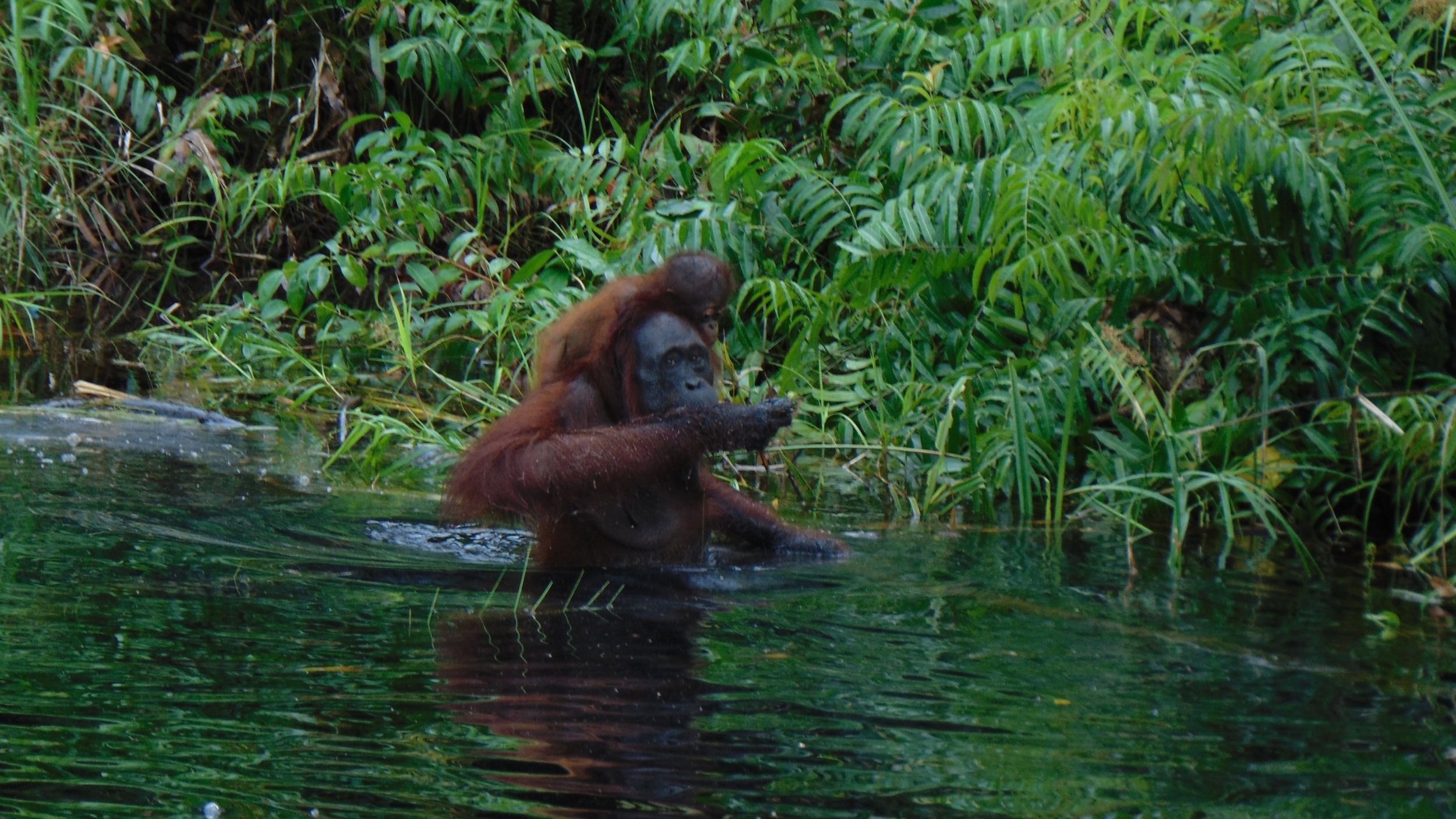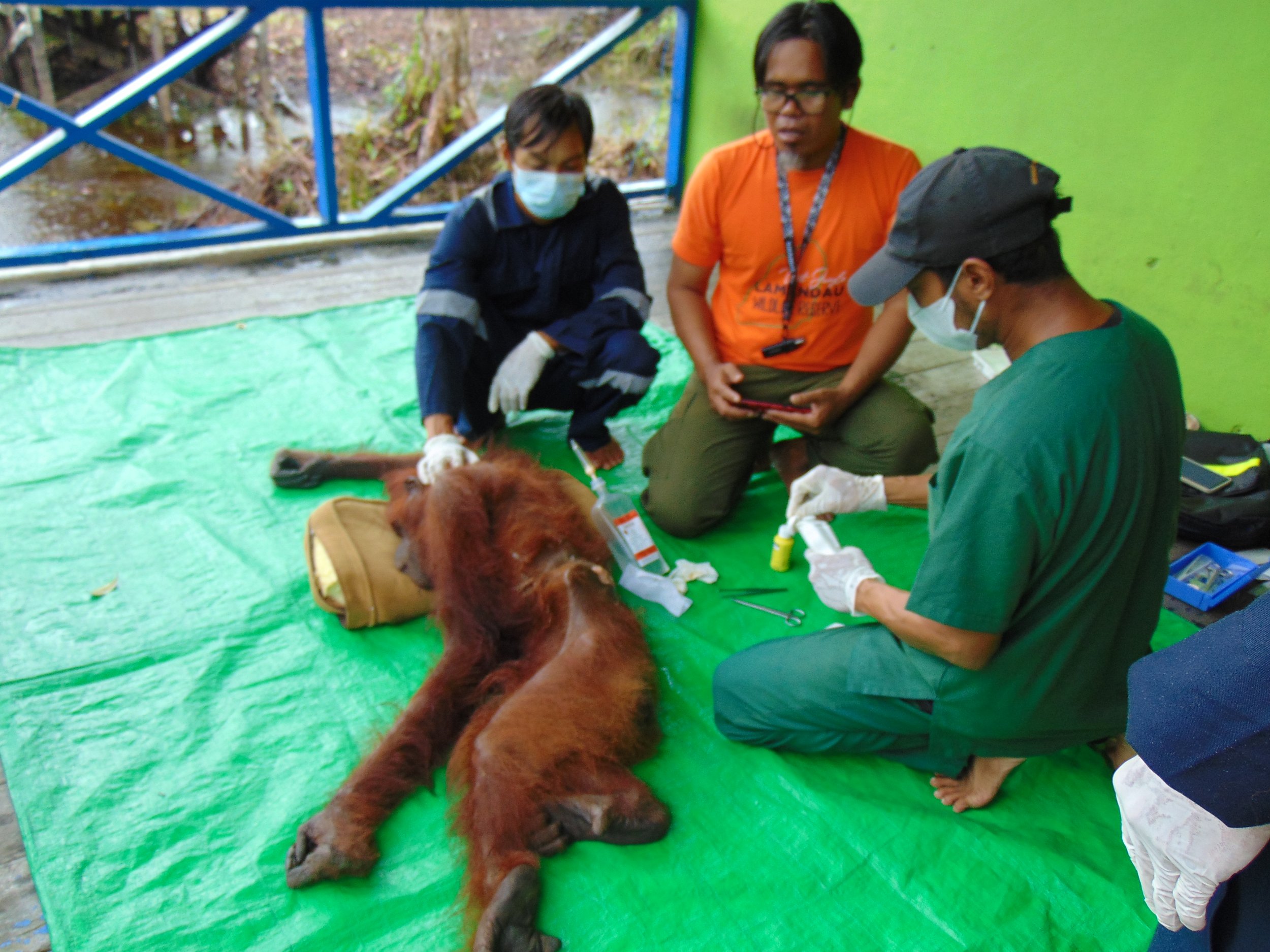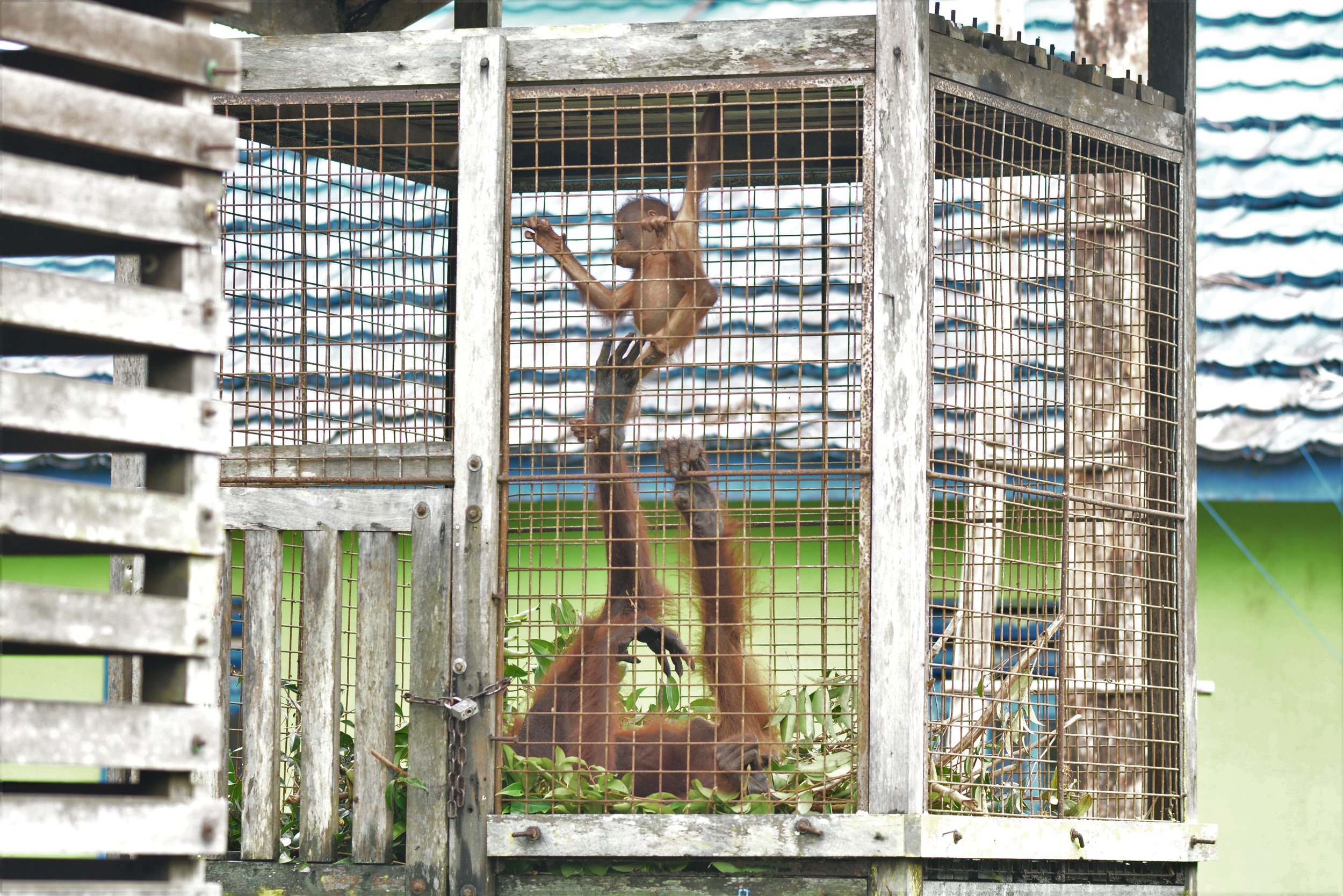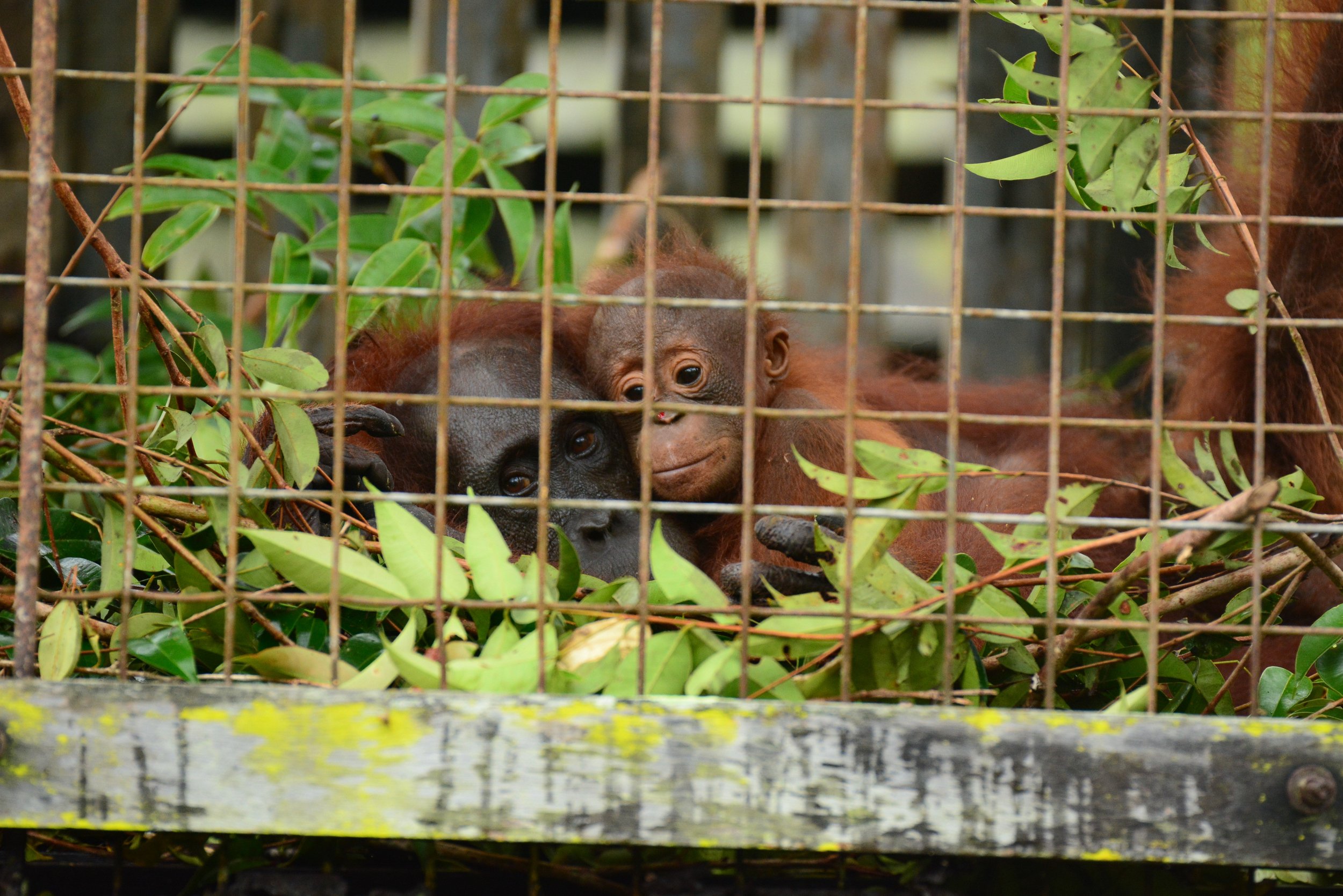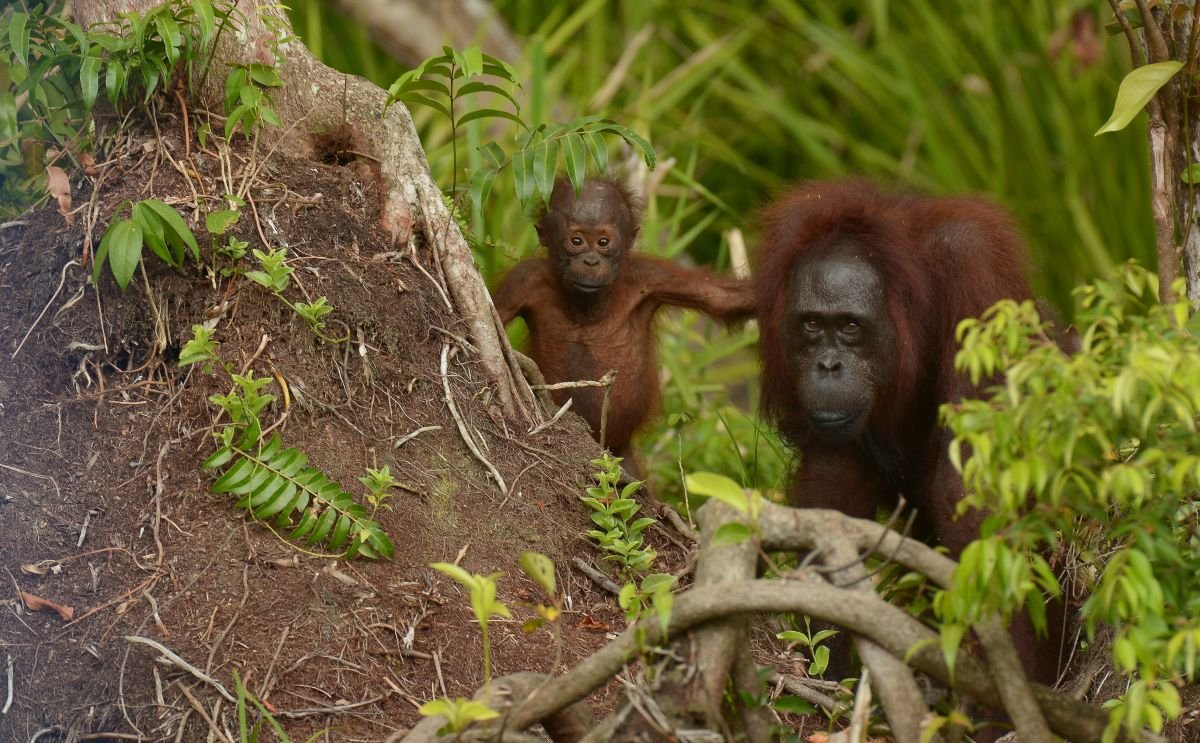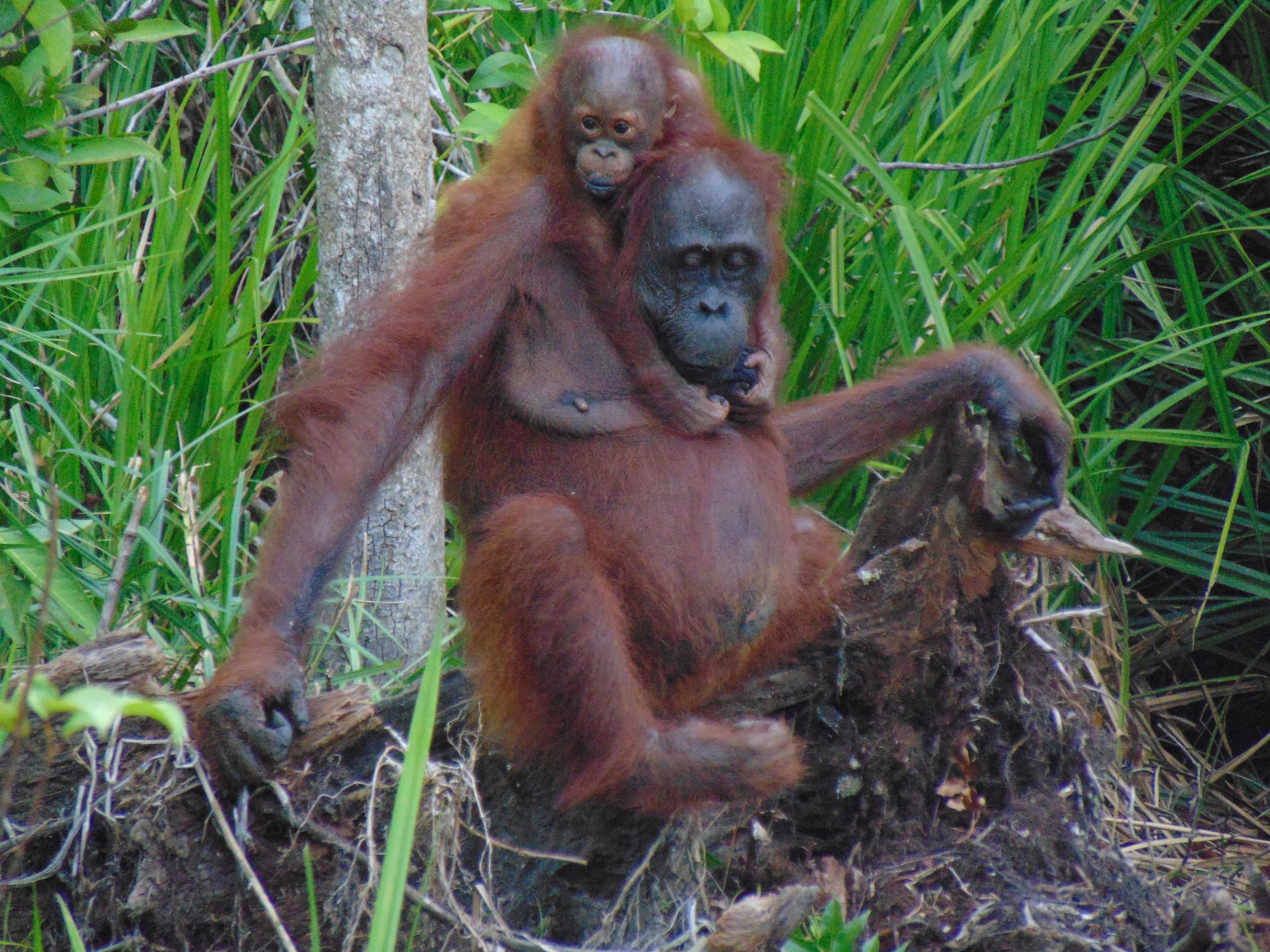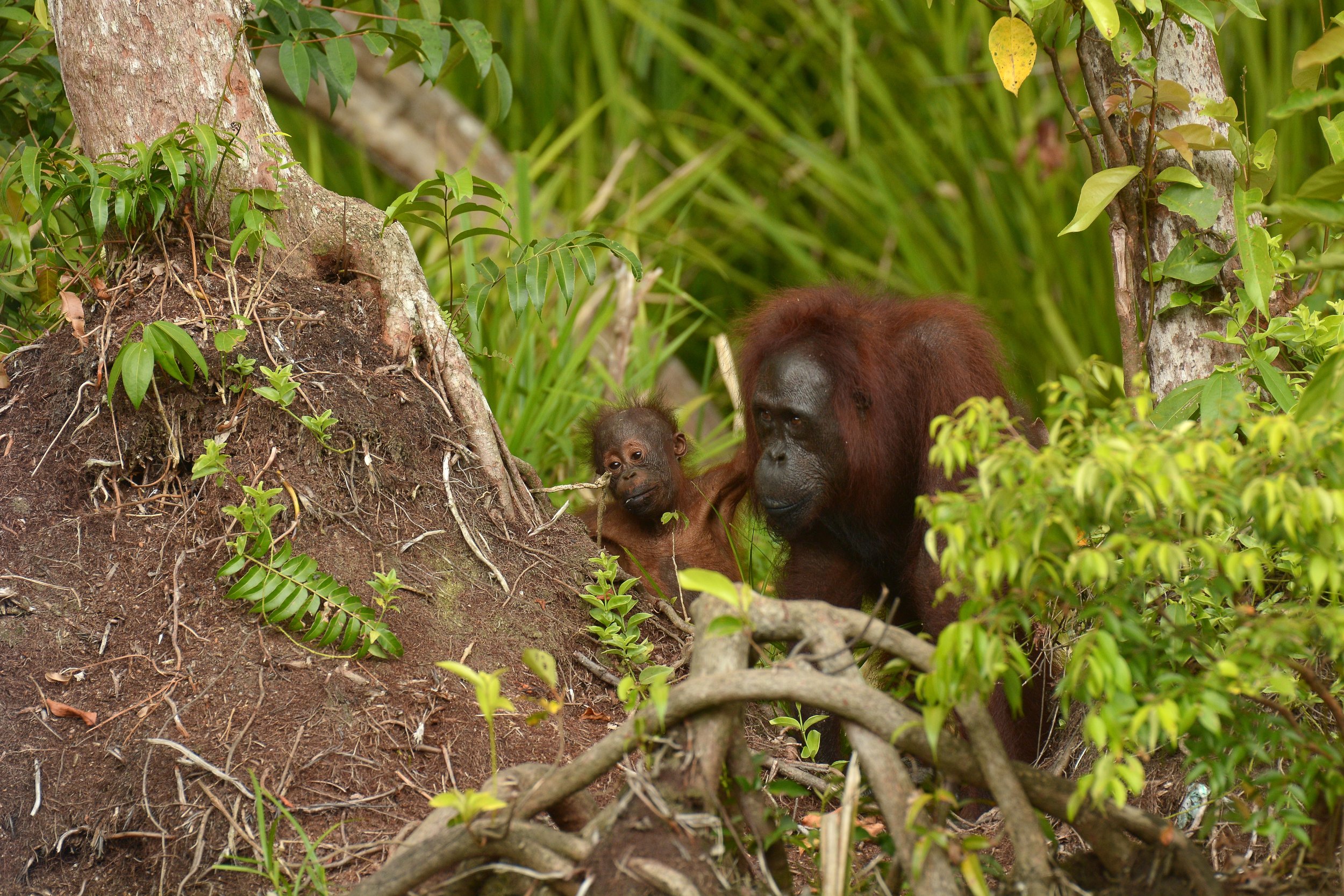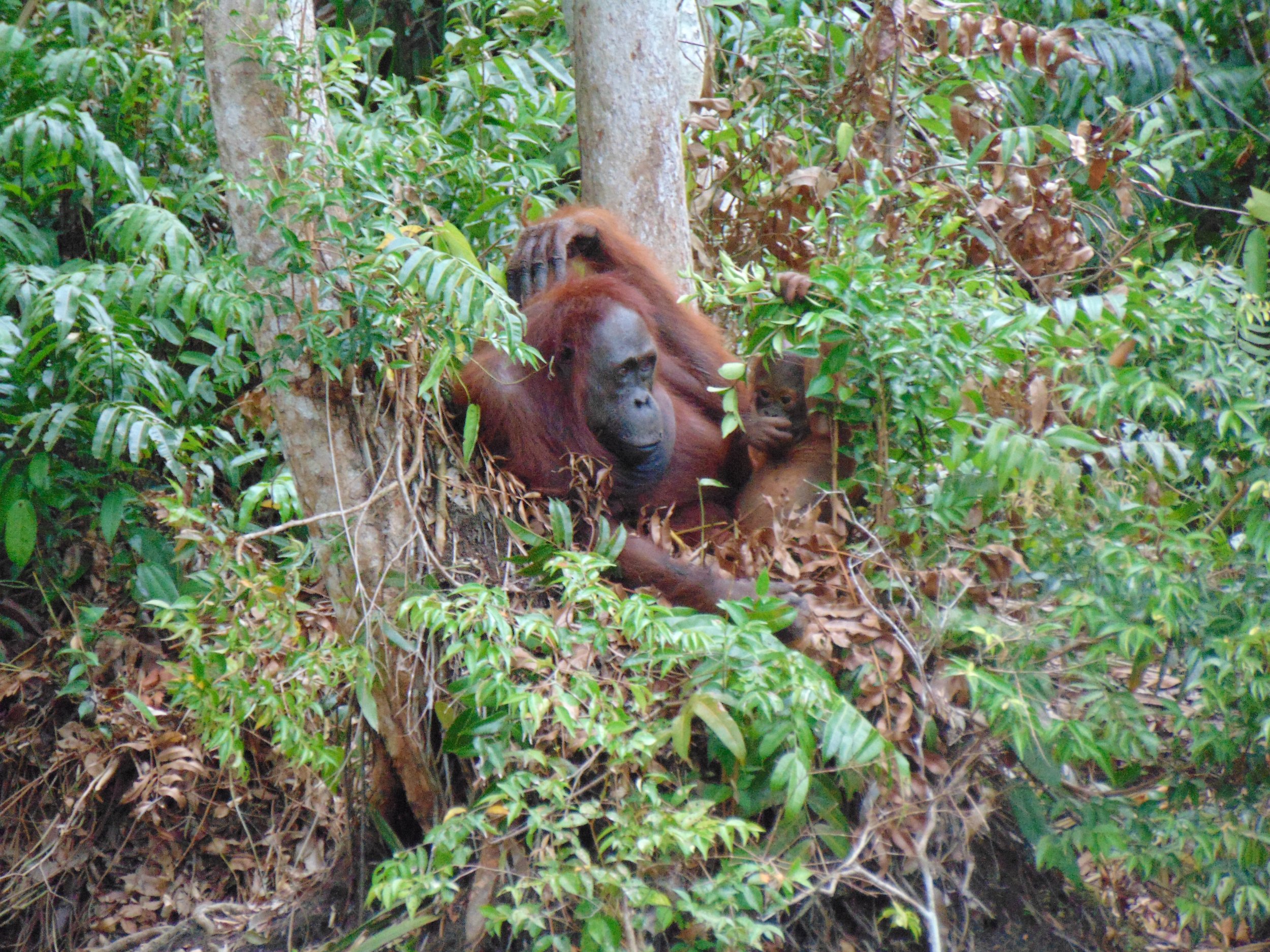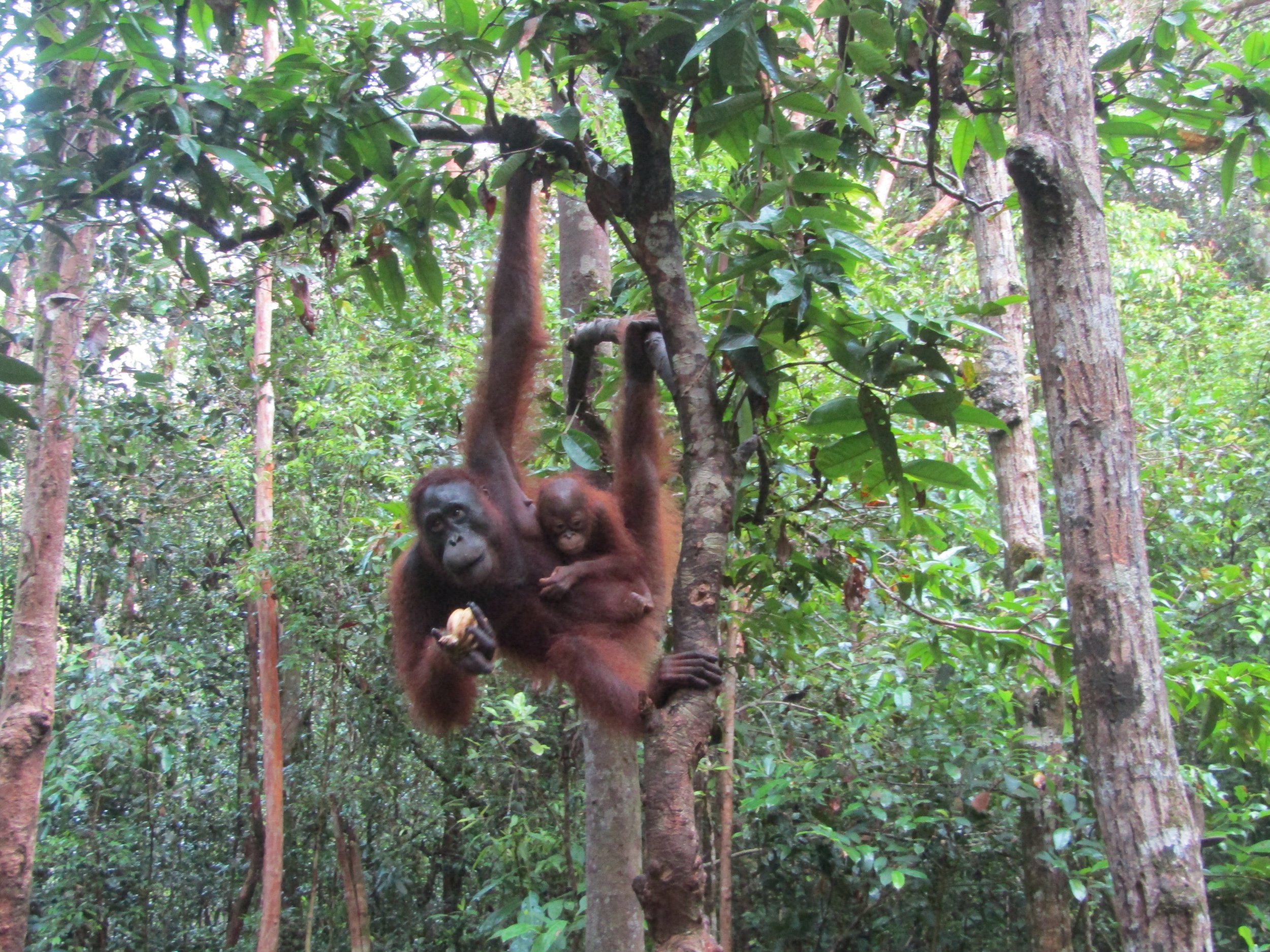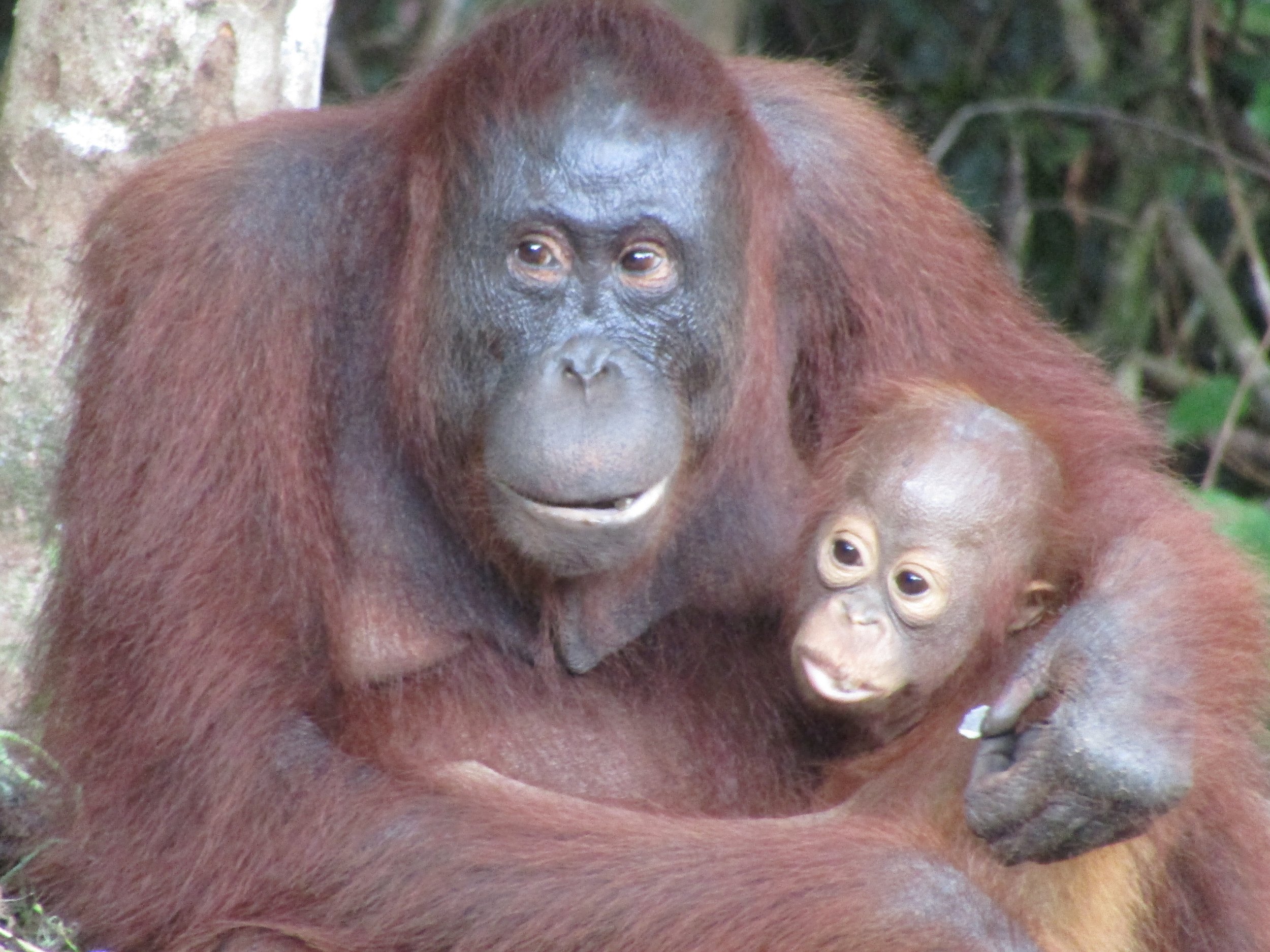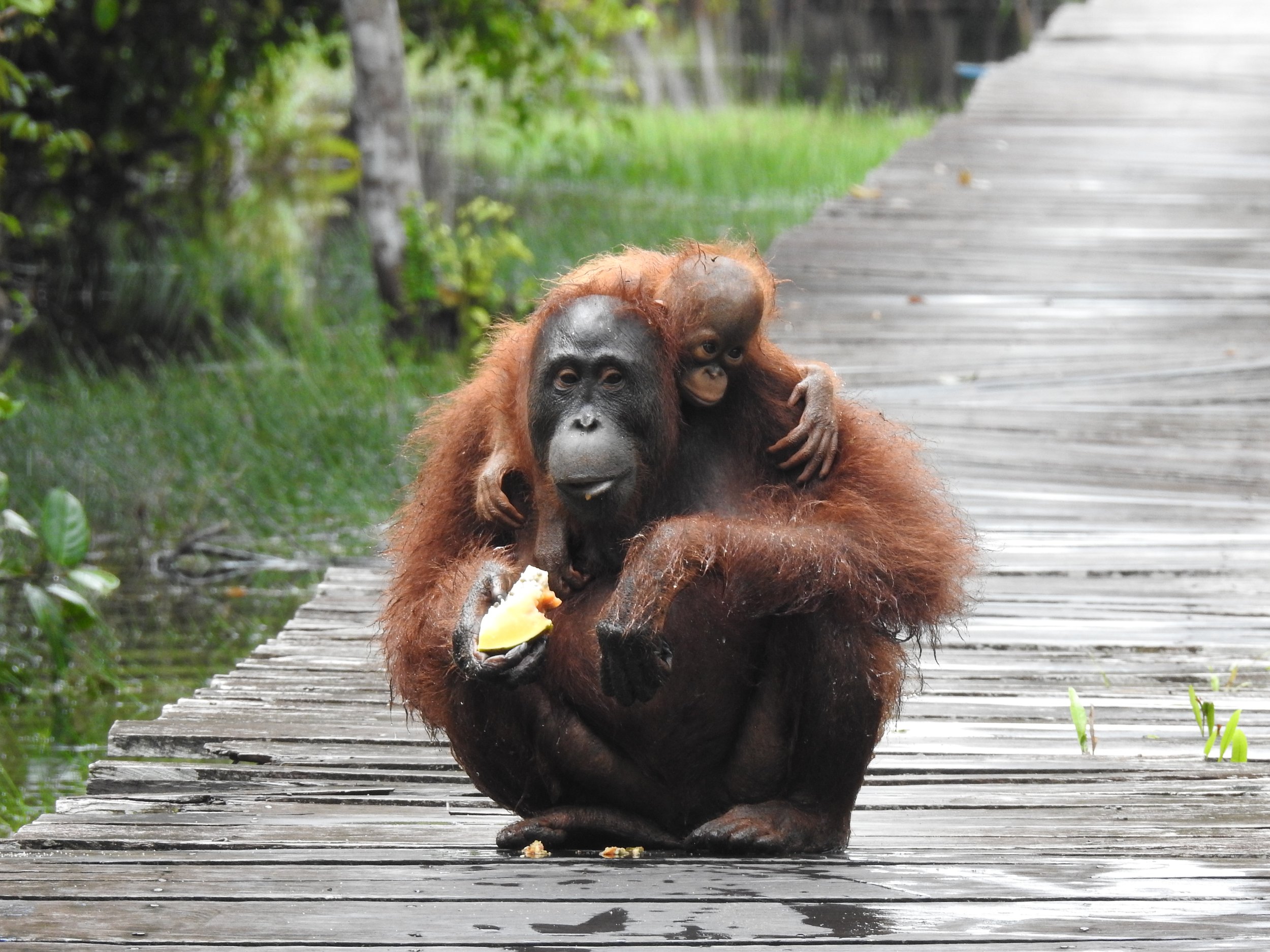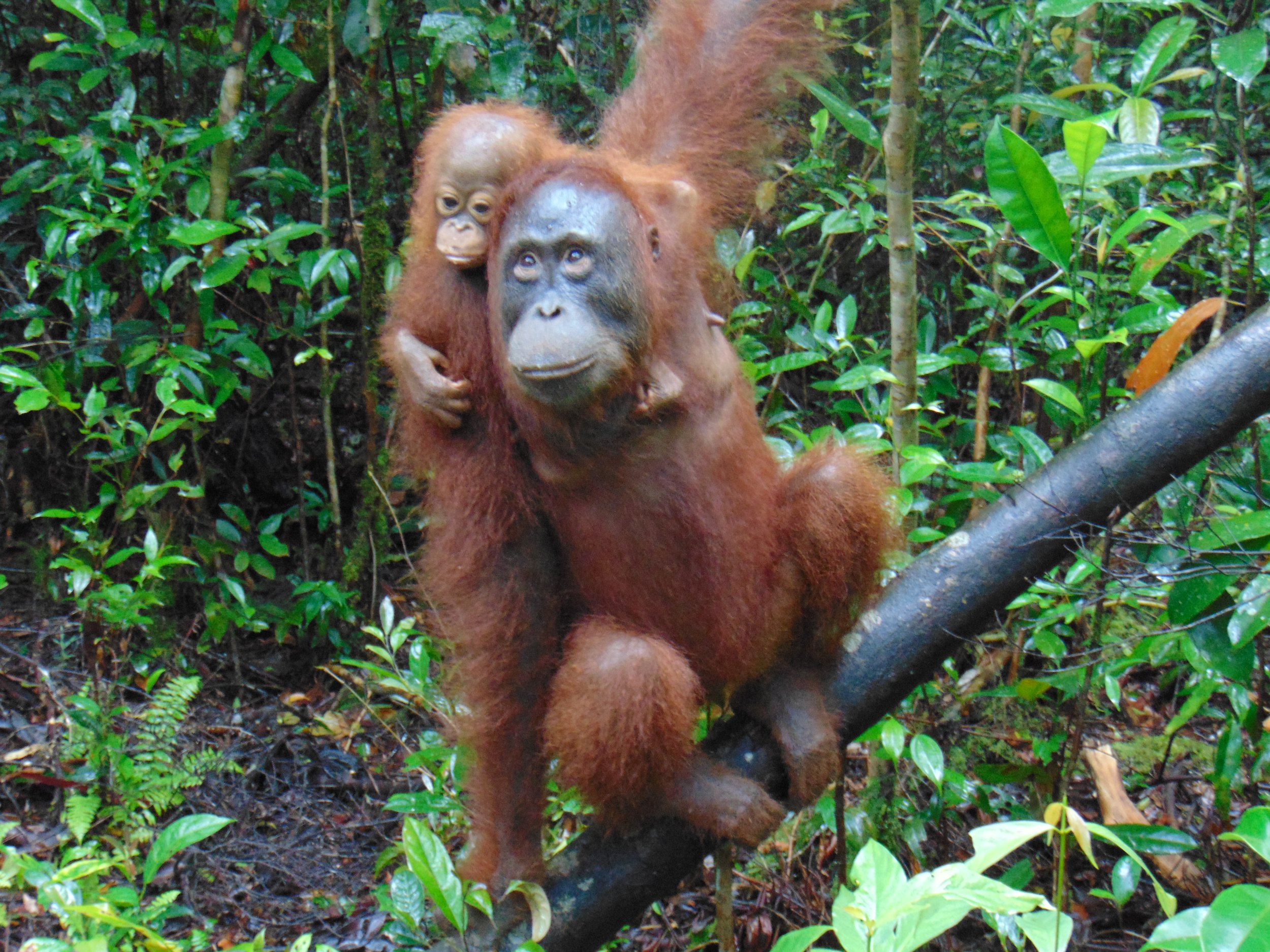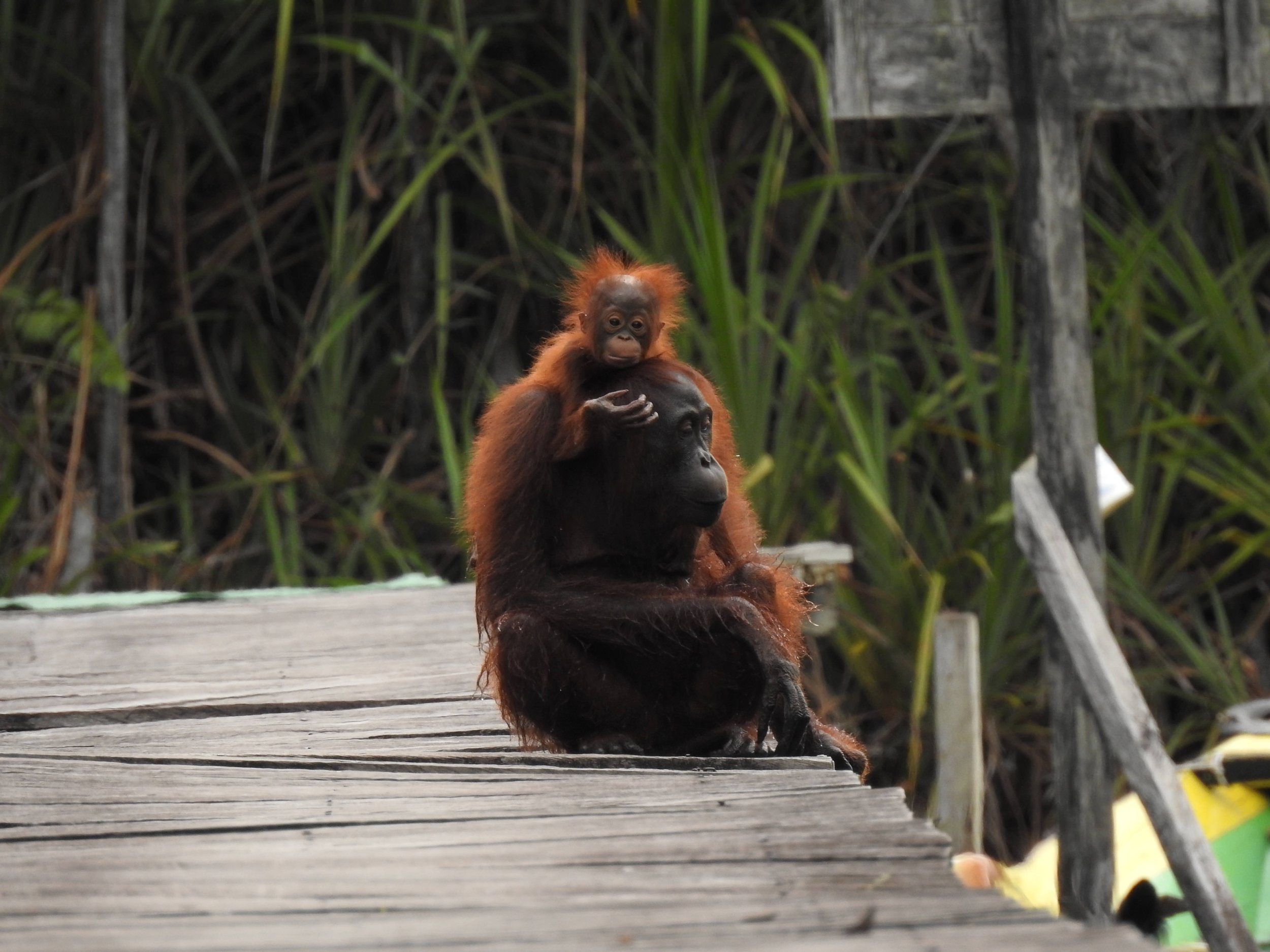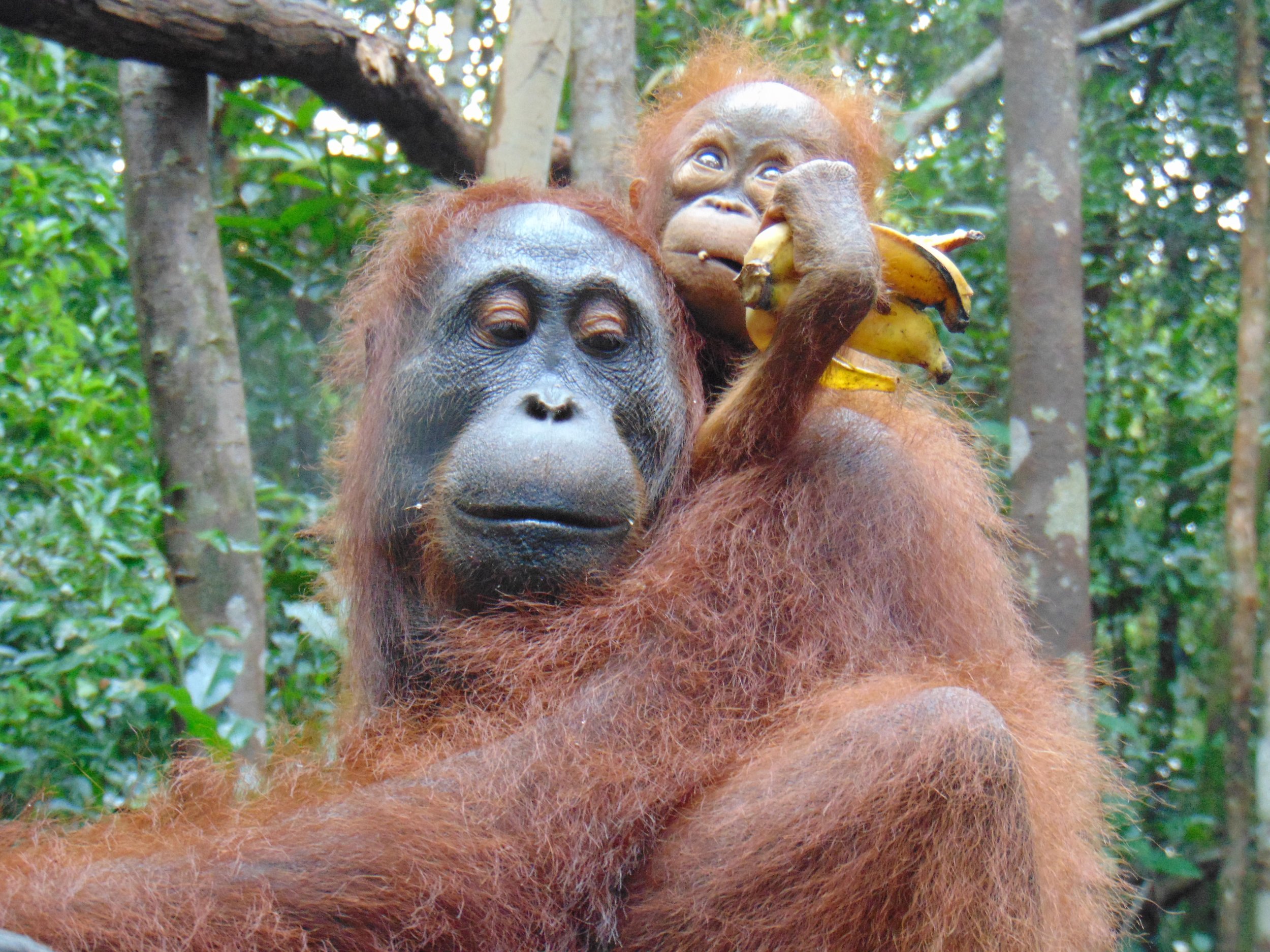In January of this year, our vets were called to Camp Buluh in the Lamandau Wildlife Reserve to treat Queen after she had suffered a crocodile attack. She and her son Quentin were noticeably missing around camp after the new year but were eventually sighted and the team discovered that Queen had a large wound on her lower back.
Queen was often seen wading along the edge of Buluh River. It’s likely that the attack happened there.
To inspect the wound more closely, Queen was sedated and during the examination, four holes were found which resembled the bite of a crocodile. They were stitched up and Queen was moved to a holding cage at Camp Buluh to allow the team to monitor her recovery.
She wasn’t the easiest patient to look after. Too much curiosity and movement meant that she opened her stitches a few times, requiring repeat visits from our vets to clean and patch them up again. Over time it became clear that one of the holes was not healing as fast as the others, however, Queen’s appetite and behaviour remained active and as you would expect from a healthy orangutan which was a promising sign.
Eventually the decision was made to do surgery on her and attempt to stitch the hole up closer to the colon. With Dimas and Wawan working in parallel and aided by two camp staff, Queen was in and out of surgery quickly. Unfortunately, they couldn’t complete the operation as hoped and decided to keep Queen at camp for longer to see if the wound would heal by itself.
Queen’s son Quentin remained by her side throughout her recovery. It was a tough experience for the young orangutan who, as a wild born orangutan, is not used to being confined to a small enclosure or having so many people around. Anytime he and Queen had to be separated both mother and son became distressed and so the team tried to avoid that as much as possible.
Finally in June, Queen was given the all clear to return to the wild. She and Quentin were released near Camp Buluh and we are pleased that they have remained close since, allowing camp staff to continue monitoring her.
Despite what was likely a traumatic attack, and a long recovery, Queen and Quentin are thriving once more in the protected Lamandau Wildlife Reserve. It’s thanks to your support that we are able to respond in emergency situations like these and provide the dedicated care that orangutans need. Every orangutan life is precious, and we are grateful that we could protect Queen’s.
A monthly donation of £50 a month can cover both our vet’s salaries for an entire month, please consider supporting their vital work!


